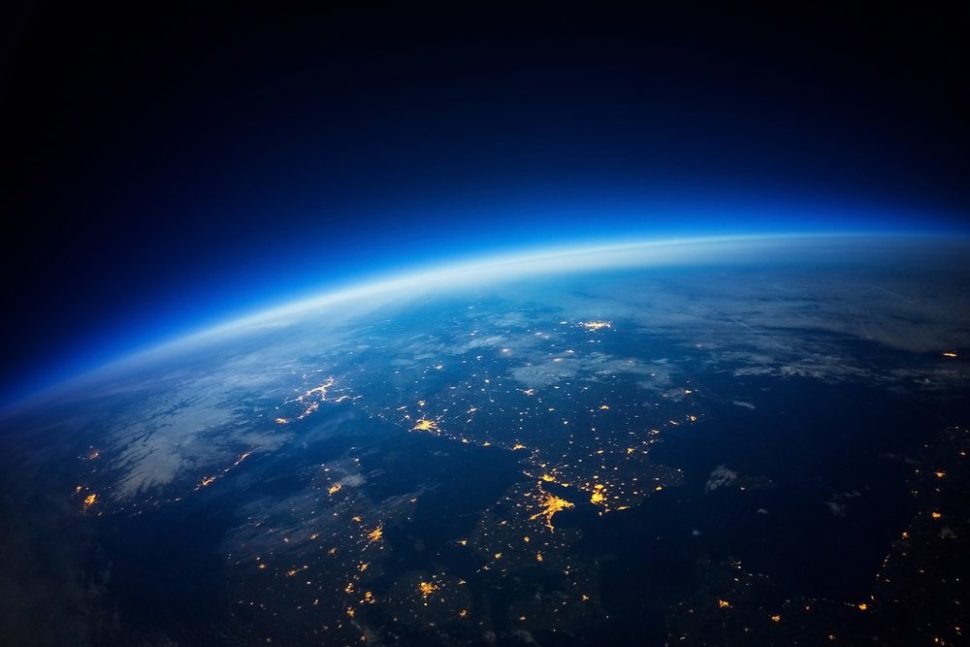Two researchers offer a scientific and philosophical reflection on the geological footprints of industrial civilizations called the Silurian Hypothesis.
The ancient civilization of Atlantis has been the subject of speculation and research for over 2000 years since Plato first described the Lost City in 360 BCE.
Some consider Plato’s recount of Atlantis legend as a mixture of historical facts and philosophical allegory, but no one has succeeded in finding its location–if it ever existed.
Lemuria civilization is another ancient utopian civilization that, as the legend goes, sunk with a whole continent and left no visible traces.
Atlantis and Lemuria are only two of a number of ultra-sophisticated ancient civilizations that could have existed in the past. But, how advanced were these civilizations?
Beyond legends, civilizations seem to obey a repetitive cycle: they arise, decline, then fall, sometimes abruptly, due to a number of different factors.
All ancient civilizations of the world, like Ancient Mycenae and the Mayan civilization, followed this cycle.
However, some of the traces of their existence are still visible today giving archeologists, historians, and anthropologists insights about the evolution of societies and cultures.
If some of these archeological imprints are now visible, will they be still detectable in millions of years?
Will modern civilization preserve some clues of its existence for geological posterity?
Advanced Civilizations Before Humans: the Silurian Hypothesis
In the seventh season of the British science fiction TV series “Dr Who” (the 70s classic), there’s a 7-episode serial titled “Doctor Who and the Silurians”.
Silurians as depicted in the show, also known as Homo Reptilia, are the first evolved beings that roamed on Earth.
Thinking the planet was going to be destroyed, they retreated underground and lived in hibernation for millions of years until human activities woke them up.
The conflict between Silurians and humans that follows isn’t our focus, and you can catch up with events as they unfold in the serial.
It’s the idea behind it and the flurry of questions it sparks that are really important.
- What if, in our planet’s distant past, a reptilian civilization reigned over Earth?
- How could we be sure modern humans are the only advanced species that lived over the course of millions of years?
- This raises another question: what long-term traces would an industrial civilization leave on our planet?
- Imagine that humans disappear one day from the face of the Earth. How long would the footprints of our presence remain? Thousands of years? Millions of years?
There may come a time when nothing from our civilization would remain.
Say millions of years after our destruction another organic civilization rises on Earth. How would they know that we ever existed?
The Real-Life Silurian Hypothesis
Silurians, as a fictional ancient advanced species, introduce us to a hypothesis that two researchers developed about advanced civilizations before humans.
Adam Frank is a Professor of Astrophysics at the University of Rochester, N.Y., and Gavin Schmidt a climatologist and the director of NASA’s Goddard Institute for Space Studies.
The research duo wondered whether the human civilization would leave any detectable footprints that would inform our existence after millions or tens of millions of years.
Then, they went further with their idea and explored it from the opposite angle: could there be such geological traces left by ancient industrial civilizations that we have yet to detect?
Here’s Professor Adam Franck giving us the basic gist of their Silurian Hypothesis:
“Gavin and I have not seen any evidence of another industrial civilization. But by looking at the deep past in the right way, a new set of questions about civilizations and the planet appear: What geological footprints do civilizations leave? Is it possible to detect an industrial civilization in the geological record once it disappears from the face of its host planet? These questions make us think about the future and the past in a much different way, including how any planetary-scale civilization might rise and fall.”
Our Geological Legacy
According to researchers, anthropogenic activities will leave an indelible mark on the planet’s atmosphere for a very long time.
The soil and atmosphere will preserve several clues that will point to our not-so-friendly exploitation and large-scale abuse.
If it’d be impossible to find architectural landmarks, for example, pieces of plastic and other synthetic pollutants will still be detectable after tens of millions, if not billions, of years.
Read More: Study Finds Great Pacific Garbage Patch at Nearly 3x the Size of France
As a byproduct of fossil fuel consumption, our nitrogen footprint will also be detectable in the soil. Sedimentary layers of rocks will also preserve traces of some mining activities.
For those interested, there’s a lot to dig in Frank and Gavin’s paper, The Silurian hypothesis.
The most sobering conclusion is that future civilizations will learn of our existence more through our mismanagement of the planet and its resources than anything else.



















Comments (0)
Most Recent